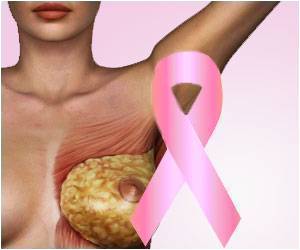Researchers reported in the Lancet that post-menopausal women with a family history of breast cancer are at the risk of developing the disease by taking an anti-hormone drug called anastrozole.

Anastrozole is not only more effective than the two standard drugs for preventing breast-cancer, tamoxifen and raloxifene, it also has fewer side effects, they added.
The study enrolled 3,864 post-menopausal women considered to have a high inherited risk of breast cancer.
They were deemed to be in this category if they had had two or more blood relatives with breast cancer, had a mother or sister who developed breast cancer before the age of 50 or had a mother or sister who had cancer in both breasts.
At the followup-point, five years after enrolment, 40 women in the anastrozole group had developed breast cancer compared to 85 women in the placebo group.
"This research is an exciting development in breast cancer prevention. We now know anastrozole should be the drug of choice when it comes to reducing the risk of breast cancer in post-menopausal women with a family history or other risk factors for the disease," said Jack Cuzick, head of the university's Centre for Cancer Prevention.
Side effects were rare, mostly comprising small increases in muscle aches and pains, and hot flashes, according to Cuzick.
Anastrozole, marketed under the brand name Arimidex, works by preventing the body from making the hormone oestrogen, a source for many breast cancers.
It has been used for more than 10 years to treat postmenopausal women diagnosed with so-called oestrogen receptor positive breast cancer.
In a press release, the British charity Cancer Research UK, which helped fund the research, said the study was a "landmark."
The next step was to determine which women benefited most from the drug, and which were likely to have the least side effects from taking it for a prolonged period, it said.
Cuzick added that the researchers intended to follow the volunteers for "at least 10 years, and hopefully much longer," to see whether the preventative effect was sustained, and to monitor for any change in side-effects.
The study was simultaneously presented on Thursday at a conference on breast cancer in San Antonio, Texas.
Source-AFP
 MEDINDIA
MEDINDIA




 Email
Email










